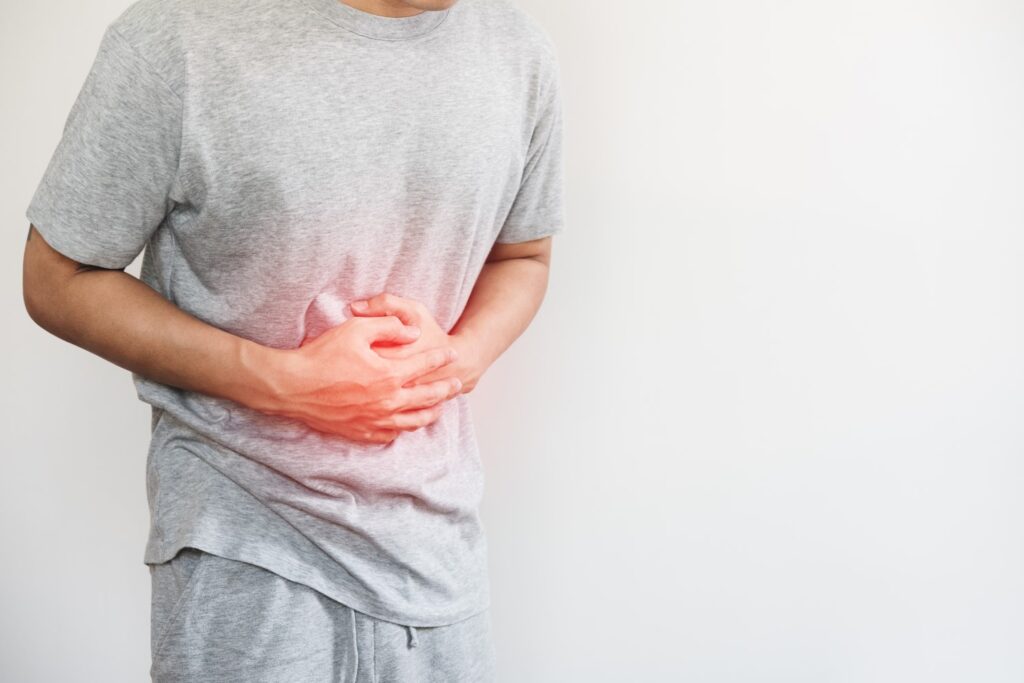Peptic ulcer disease is when painful sores appear in the stomach’s lining or the first part of the small intestine (duodenum). A thick layer of mucus protects the stomach from its own acids. But when this protection weakens, stomach acid can hurt the tissue, forming ulcers.
Who’s at Risk?
Did you know that 1 in 10 people can get ulcers? Some things make it more likely:
- Using pain relievers, a lot, like ibuprofen
- A family history of ulcers
- Being sick with liver, kidney, or lung problems
- Drinking alcohol regularly
- Smoking
Causes: Not What You Might Think
In the past, people believed stress or certain foods caused ulcers. But science tells a different story:
- H. pylori Bacteria: These tricky germs can infect your stomach. About half of people have them without symptoms. They break the mucus protection, letting acid hurt the stomach lining. Not everyone with these bacteria gets ulcers, though.
- Pain Relievers (NSAIDs): Medicines like ibuprofen, aspirin, or naproxen can weaken the mucus. This lets stomach acid do harm. People with H. pylori and who use NSAIDs a lot have a higher risk.
Signs and Symptoms
Ulcers can stay hidden, but they might show themselves:
- A burning pain in your tummy between meals or at night
- Feeling better after eating or taking an antacid
- Bloating
- Heartburn
- Feeling like throwing up
In severe cases:
- Dark or black poop (bleeding)
- Vomiting
- Losing weight
- Serious tummy pain
Getting to the Bottom of It: Diagnosing Ulcers
Doctors ask about symptoms to figure out if you have ulcers. They might also do tests:
- Endoscopy: If you have strong symptoms, a tiny camera goes into your tummy to check for ulcers.
- H. pylori Tests: A breath, blood, or stool test can find these sneaky bacteria.
- Imaging Tests: Sometimes, X-rays or CT scans can help see the ulcers.
Taking Action: Treating Ulcers
Ulcers need attention, or they can cause big problems:
- Bleeding Ulcer: If it’s bleeding, a doctor can stop it during an endoscopy.
- Medicines: Doctors might give you PPIs (to lower acid), H2 blockers (to slow acid), or antibiotics (to fight H. pylori).
- Protection: Special medicines act like a shield on the ulcer, guarding it from acid.
Preventing Ulcers: Smart Moves
Avoiding ulcers is like protecting your castle. Here’s how:
- Pain Relievers: Use gentler ones, if possible. If not, talk to your doctor.
- NSAIDs: If you need them, take less, eat with them, and don’t use for a long time.
- Quit Smoking: It’s good for your whole body.
- Alcohol: If you drink, keep it moderate.
Peptic ulcers might be tricky, but now you’re in the know! Remember, understanding and prevention are your best tools against these tummy troubles.
